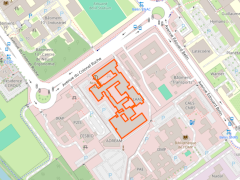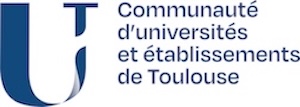Department do
Decision and Optimization
The "Decision and Optimization" department develops theoretical and methodological contributions for the design of mathematical laws and algorithmic techniques dedicated to control and decision problems.
head
Methodologies
Methodologies are the core of the research in the DO department. In 2019, we identified six topics that illustrate the common features of our activities:
- certificates
- hierarchies
- uncertainties
- computational methods
- codes and applications
- international cooperation and LAAS-DO Fellows
The topics express the continuum of activities from theoretical results to software products. Most of the DO contributions borrow to more than one of these topics. We for example aim at systematically provide efficient algorithmic or numerical tools for solving generic problems. Conversely, theoretical results are formulated in such a manner that tools, mainly optimization based, car be used. Theory is considered with the aim of leading to practical solutions for applications from industrial and other partners. We cherish doing this research work with many colleagues from abroad who bring us fruitful alternative view points on the considered topics.
The papers cited in the following are illustrative of the topics and constitue a partial coverage of the results published before 2019.
Certificates
Reliable Decision and Optimization requires guaranteed properties such as stability, performance, robustness, security, tolerance, convergence, reduced error bounds, etc. Such properties are hard and often impossible to compute directly or analytically. The approach in the DO department consist of producing indirect means to guarantee related quantities of the considered properties. These means are gathered under the naming of Certificates: mathematical or algorithmic objects providing guarantees. We distinguish among the certificates those on solutions (existence/characterization) ; those on asymptotic behavior (stability and others) ; those for constraint satisfaction ; those for measuring complexity.
Some results in terms of Certificates:
- Functional Diagnosticability and links to identificability, hal-01198408, hal-01701564
- Diagnosticability and diagnosis of fault frames, hal-01847155, hal-01574475
- Hybrid Lyapunov functions for asymptotic stability, hal-01526331, hal-01700168, hal-01474407
- Stability for infinite dimensional systems, hal-01109796, hal-01448483, hal-01643321
- S-variables, a certificate for robustness analysis and control design, hal-01760625, hal-01851202
- Synchronisation and consensus, hal-01324150, hal-00932841, hal-01576615
- Optimal contrôle: applications to space rendez-vous, hal-01078528, hal-01484764
- Domain of attraction characterization, hal-01818954, hal-02025286, hal-01995607
- Complexity of combinatorial problems, hal-01529299, hal-01023267, hal-01974431
- Polynomial certificate for conservative constraint satisfaction problems, hal-01413124, hal-01230681
- "Kernelization" for constraint propagation, hal-01873503, hal-01670318
- Guaranties on approximations, hal-01354589, hal-02074379
Hierarchies
Performances (stability, bounds on energies) of engineering systems are recast as decision problems (satisfaction of contraints, optimization) which by default are hard (infinite dimensional, non-linear, non-convex). To circumvent the difficulties, DO develops hierarchies of simpler problems (finite dimensional, linear or convex) whose solutions may converge in some sense to the solution of the original problem. Convergent or complete hierarchies are such that the sequence of relaxed problems grow in size (number of decision variables and contraints) with respect to some relaxation index (for example the degree of involved polynomials) and as the index grows to infinity the relaxed evaluation converges to the exact value of the performance. Incomplete hierarchies are those for which convergence is experimentally verified but not formally proven.
Some results in terms of Certificates:
- Multibeam satellites design, hal-02066101, hal-01231332
- Energy conversion function, hal-01444317
- Polyhedral analysis for resource-constrained project scheduling, hal-01461447, hal-01977452
- Extended formulations in combinatorial optimization, hal-01163925, hal-01816861
- Approximations by homogeneous polynomials, hal-00785158
- Experimental design theory, hal-01483490
- Regions of attraction, hal-00723019
- Time delay systems, coupled ODEs-PDEs, hal-01548256, hal-01566455
- Diagnosticability of hybrid systems, hal-01676931
- Rigorous solutions of ODEs, hal-01526272
Uncertainties
Uncertainties are considered in the context of feedback control, parameter estimation and diagnosis of dynamical systems, continuous and combinatorial optimization. The uncertainty sets are described by one or several mathematical models among intervals, zonotopes, polytopes as well as described by bounded norms, weighted or not. The goal is to evaluate the effect of the uncertainties on the to be measured performances which themselves happen to lie in a variety of sets.
Some results in terms of Uncertainties:
- Uncertainties in the context of feedback control, hal-01109796, hal-01760567, hal-01851202, hal-01713146, hal-01509787, hal-01096851
- Uncertainties in parameter estimation and diagnosis, hal-01970882, hal-01132149, hal-01966316, hal-01930370, hal-01739540, hal-01229083
- Uncertainties in optimization, hal-01487006, hal-01078508, hal-01875889, hal-01635856, hal-01974431, hal-01954509
Computational methods
The researchers of the department conceive efficient concrete algorithmic methods. These have provided significant progress if the Control, AI and Operational Research fields. The three main topics for which contributions were provided are optimization, diagnosis and control, learning.
Some results in terms of Computational methods:
- Primal and dual bounds in combinatorial optimization, hal-01163925, hal-01614391, hal-01880025
- Deductive inference reinforcement of contraint programming solvers, hal-01579781, hal-01546131, hal-01023267
- Hybridation methods for mixed integer linear programming, hal-01234466, hal-01229050, hal-01873500
- Reformulation of 0-1 variable linear or quadratic programming as a MAX-CUT, hal-01154698 and combinatorial games, hal-01418153
- Heuristics for active diagnosis, hal-02056090 and for static output feedback design, hal-01970884
- Decentralized and distributed architectures, hal-01760482, hal-01579467
- Parameter estimation of PDEs , hal-01352772
- Time shift diagnosis for timed discrete-event system, hal-01534552
- Incremental diagnosis to establish test sequences for fault localization, hal-01400360
- Algorithms for space rendez-vous, hal-01484764
- Non supervised classification, hal-01998674, hal-02004417
- Supervised learning, hal-01998620, hal-01726292
- Floating number Arithmetics, hal-01351529, hal-01111551, hal-00957379
Codes and applications
The DO department produces various codes and softwares. Software are intended to promote generic solutions. These are distributed in most of the cases in open access and some have benefited of maturation transfer processes. The codes are produced more specifically for concrete applications in cooperation with industrial partners.
- See the DISCO Production
- See the MAC Production
- See the POP Production
- See the ROC Production
2019 report
in 2019 the department produced a report of 2015-2019 activities and prospectives for 2020-2025.
International cooperation
The DO department cherishes international cooperation. It is attested by the reputation indicators of the teams (DISCO, MAC, POP, ROC) and also by the many foreign PhD students and temporary researchers hosted in the department.
Staring from 2021 the DO-LAAS department (Decision and Optimization) acknowledges fellow colleagues from abroad who collaborate closely with members of the department. The eligible colleagues should be members of research institutions in a foreign country, should have visited or stayed at LAAS in Toulouse in the previous five years, and have co-signed scientific results with DO-LAAS members. Nominations are made by DO-LAAS members. The DO-LAAS scientific council validates and the head of the department appoints the DO-LAAS Research Fellows.
2023 DO-LAAS Research Fellows
- Alessandro Agnetis - Università degli Studi di Siena, Italia
- Philipp Braun - Australian National University, Australia
- Andrea Cristofaro - Sapienza Università di Roma, Italia
- Emir Demirovic - TU Delft, Koninkrijk der Nederlanden
- Yoshio Ebihara - Kyushu University, 日本
- Francesco Ferrante - University of Perugia, Italia
- Sebastien Gambs - Université du Québec à Montréal, Canada
- Rafal Goebel - Loyola University Chicago, USA
- João Manoel Gomez da Silva Jr. - Universidade Federal do Rio Grande do Sul, República Federativa do Brasil
- Yohei Hosoe - Kyoto University, 日本
- Igor Klep - Univerza v Ljubljani, Slovenija
- Martin Kružík - Czech Academy of Sciences, Prague, Česko
- Valter Leite - U CEFET Divinopolis, República Federativa do Brasil
- Axel Osses - Universidad de Chile, Chile
- Gustavo Perez-Zuniga - Pontificia Universidad Católica del Perú, Perú
- Claude-Guy Quimper - Université Laval Québec, Canada
- Alexandre Seuret - Universidad de Sevilla, España
- Javier Sotomayor - Pontificia Universidad Católica del Perú, Perú
- Anna Sztyber-Betley - Politechnika Warszawska IAiR, Polska
- Jie Wang - Chinese Academy of Sciences, Beijing, 中华人民共和国
2021 DO-LAAS Research Fellows
- Alessandro Agnetis - Università di Siena, Italia
- Jose Aguilar - Universidad de Los Andes, Venezuela & Universidad de Alcala, España & Universidad EAFIT, Columbia
- Carolina Albea Sanchez - Universidad de Sevilla, España
- Philipp Braun - Australian National University, Australia
- Yoshio Ebihara - Kyushu University, 日本
- João Manoel Gomez da Silva Jr. - Universidade Federal do Rio Grande do Sul, República Federativa do Brasil
- Alban Grastien - Australian National University, Australia
- Yohei Hosoe - Kyoto University, 日本
- Hiroyuki Ichihara - Meiji University, 日本
- Zetao Li - Electrical Engineering College of Guizhou University, 中华人民共和国
- Luis Martinez Salamero - Universitat Rovira i Virgili, España
- Claude-Guy Quimper - Université Laval, Quebec, Canada
- Masayuki Sato - JAXA, 日本
- Premysl Sucha - České vysoké učení technické v Praze, Česká republika
AREAS OF
RESEARCH AND APPLICATIONS
DO activities focus and classes of models and data, on generic optimization and decision problems. Meanwhile and therefore, the considered applications are various in type and concern diverse industries and services.
DISCIPLINARY FIELDS
COVERED IN OUR DEPARTMENT
DEPARTMENT TEAMS
All four teams combine both decision and optimization topics. POP and ROC focus on (polynomial and combinatorial) optimization and consider its usage in on decision making. DISCO and MAC focus on decision design (diagnosis and control) often based on optimization tools.

disco
The DISCO team conducts broad-spectrum methodological research in the field of diagnostics and health monitoring of complex systems, a research theme at the frontier between Automatic Control and Artificial Intelligence.
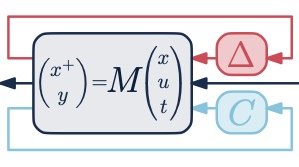
mac
The MAC Team does research in the field of systems and control theory. We develop a mathematical and theoretical basis for dynamical systems control, including modeling, design, analysis and optimization.
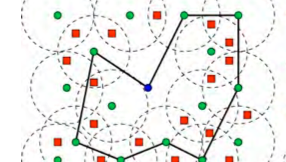
roc
Team ROC works on combinatorial optimisation problems, and on the algorithmic methods to solve them, bridging Operations Research and Artificial Intelligence.
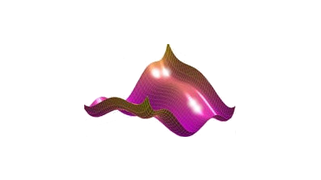
pop
The POP team focuses on solving notoriously difficult and non-convex polynomial optimization problems, arising from several adjacent fields.
Latest publications
2025
Journal articles
Conference papers
Reports
Preprints, Working Papers, ...
Didier Henrion. Maximal entropy in the moment body. 2025. ⟨hal-05092147⟩
Jean B Lasserre. A laplace duality for integration. 2025. ⟨hal-04970360v3⟩
Victor Magron. Convergence rates for polynomial optimization on set products. 2025. ⟨hal-05086019⟩
2024
Journal articles
Books
Book sections
Conference papers
Other documents
Yassine Ariba, Frédéric Gouaisbaut. Chaîne YouTube Capsules Automatique. 2024. ⟨hal-04902796⟩
Proceedings
@softwareversion
Preprints, Working Papers, ...
2023
Journal articles
Books
Book sections
Conference papers
Master thesis
Other documents
Patents
Reports
Preprints, Working Papers, ...
THESIS / HDR
2024
Louis Goupil, Thèse: Apprentissage machine guidé par des connaissances pour le diagnostic
Olga Iufereva, Thèse: Algorithmes de filtrage avec les observations distribuées par Poisson
2023
Florent Koudohode, Thèse: Commande basée évènement pour quelques équations aux dérivées partielles
Corbinian Schlosser, Thèse: Parcimonie et optimisation convexe pour les systèmes dynamiques
2022
Hao Hu, Thèse: Interpretable Machine Learning Models via Maximum Boolean Satisfiability
Mathieu Bajodek, Thèse: Analyse de stabilité de systèmes linéaires EDO-EDP interconnectés
Tom Portoleau, Thèse: Représentations discrètes pour l’ordonnancement et la planification robustes
2021
Mathias Serieye, Thèse: Contributions à la stabilisation des systèmes à commutation affine
2020
Valentin Bouziat, Thèse: Gestion des aléas dans un système multi-robots
2019
Sabrina Hadjeras, Thèse: Commande hybride pour des convertisseurs de puissance
2018
Idir Hamaz, Thèse: Méthodes d'optimisation robuste pour les problèmes d'ordonnancement cyclique
Mohammed Safi, Thèse: Stabilité de Lyapunov de systèmes couplés impliquant une équation de transport
Pierre Coupechoux, Thèse: Codes et jeux de soustraction et de poursuite dans les graphes
Ulrich Matchi Aïvodji, Thèse: Technologies respectueuses de la vie privée pour le covoiturage
2017
Yun He, Thèse: Problèmes de tournée avec prise en compte explicite de la consommation d'énergie
John William Vásquez Capacho, Thèse: Gestion d’alarmes basée sur des chroniques
Harmonie Leduc, Thèse: Contrôle adaptatif robuste. Application au contrôle d'attitude de satellites
2016
Saïd Zabi, Thèse: Modélisation et commande de l’anesthésie en milieu clinique
Margaux Nattaf, Thèse: Ordonnancement sous contraintes d’énergie
Nadia Chaabane, Thèse: Recherche de flots stables dans des réseaux de transport multi-agents
2015
DEPARTMENT NEWS













